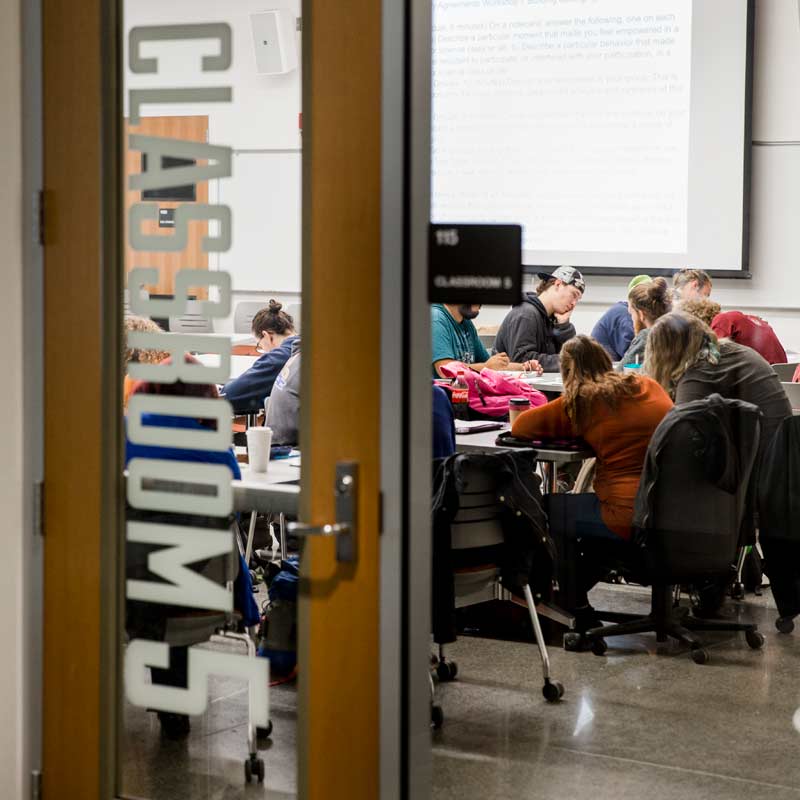What is an LC?
From students’ points of view, the most obvious dimension of a learning community are the courses they sign up for. Consequently, deciding which courses to group together in a learning community is critical: the courses need to make sense in terms of student enrollment patterns and curricular pathways.
Educators who design learning communities are inventive; there is no orthodoxy about which curricular models work best so long as it works for students on a particular campus.
A Learning Community Typology
This typology was developed in 2020 by the National Learning Communities Collaborative - a cohort of practitioners, researchers, and organizations.
Linked Courses
Cohorts of students enrolled in two or more courses led by different faculty members who identify common student learning outcomes and intentionally integrate curriculum as demonstrated by students on scaffolded integrative assignments and assessments. These are not residentially based communities.
Coordinated studies program
Coordinated studies programs are thematically linked courses fulfilling a students’ full semester course schedule. Courses are team-taught by two or more faculty. Some institutions register students for a single course of 8-16 credits while others register students for multiple courses.
Living-Learning Community
Student cohorts that live together in residence and either a) engage in integrated academic content through an integrative curriculum offered through coursework supported by co-curricular programming or b) participate in residential programming or engage in a residential curriculum co-designed by residence life/housing staff and a faculty partner(s) that complements an academic curriculum. Either approach is represented through clear collaboration between residence life /SL and AA.
Residential College
A residential college (RC) is a collegiate residential environment in which live-in faculty play an integral role in the programmatic experience and leadership of the community. Features may include academic department association, AA and SA partnerships, linked courses, curricular and co-curricular programming infused into RC, and traditional programs/social events.
Other
No typology can capture the structure of every learning community program. If the design of your learning community program is not described in options “a-d”or is a combination of the typologies above, please select this option and you will be prompted to describe your program in further detail.
National Learning Community Collaborative
The National Learning Community Collaborative is a cohort of learning community (LC) practitioners and researchers (names listed below) representing a multitude of organizations whose efforts are directly related or contribute to advocacy of and/or research/scholarship within learning communities theory and practice. This cohort has been engaging in ongoing dialogue to explore the current state and future direction of learning communities. The organizations represented in these discussions include the Washington Center for Improving Undergraduate Education, the Learning Communities Association (LCA), the ACUHO-I Academic Initiatives Conference, the National Learning Community Consortium (NLCC), the Residential College Society (RCS), the National Survey of Student Engagement (NSSE) and the National Resource Center on the First-Year Experience and Students In Transition (NRC).
- Mimi Benjamin, PhD - Indiana University of Pennsylvania
- Richie Gebauer, EdD - Cabrini University
- Jeff Godowski, MEd - Cornell University
- Janine Graziano, PhD - Kingsborough Community College, CUNY
- Jean M. Henscheid, PhD - University of South Carolina
- Jody Jessup-Anger, PhD - Marquette University
- Jillian Kinzie, PhD - Indiana University, National Survey of Student Engagement
- Karen Kurotsuchi Inkelas, PhD - University of Virginia
- Shannon Lundeen, PhD - Elon University
- Julia Metzker, PhD - Washington Center for Improving Undergraduate Education
- Rita Sperry, PhD - Texas A&M University-Corpus Christi
For a thorough discussion of learning community typologies in the existing literature, see Inkelas, K.K. & Soldner, M. (2011). “Undergraduate Living Learning Programs and Student Outcomes” in Smart, J.C. & Paulsen, M.B. (eds.), Higher Education: Handbook of Theory and Research 26.

